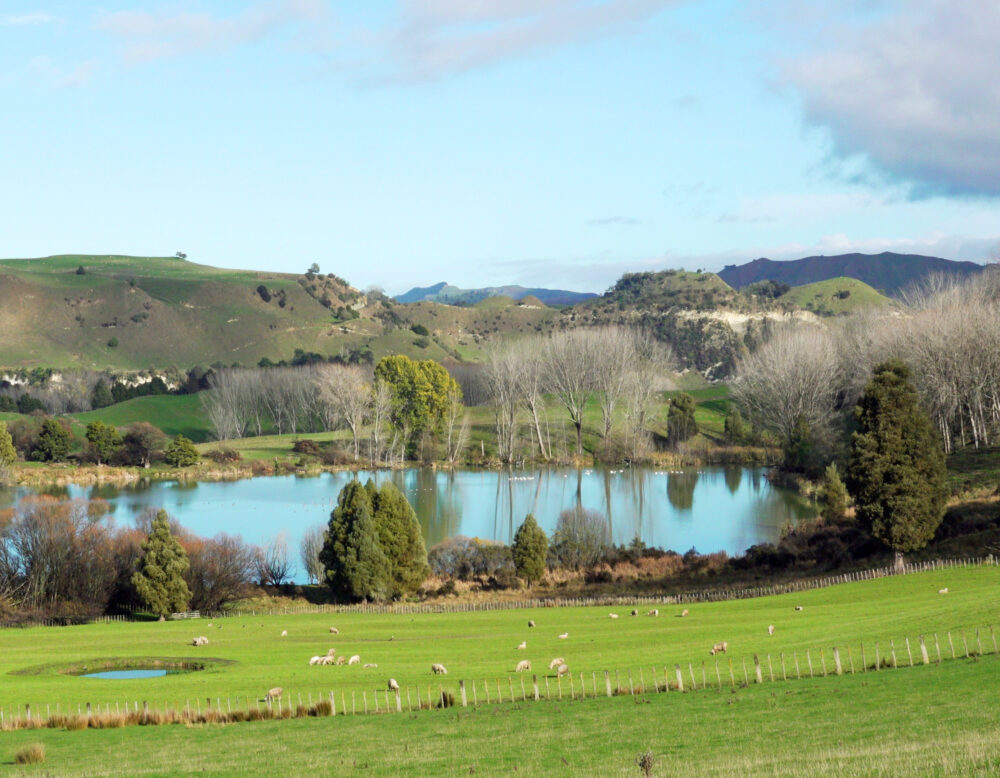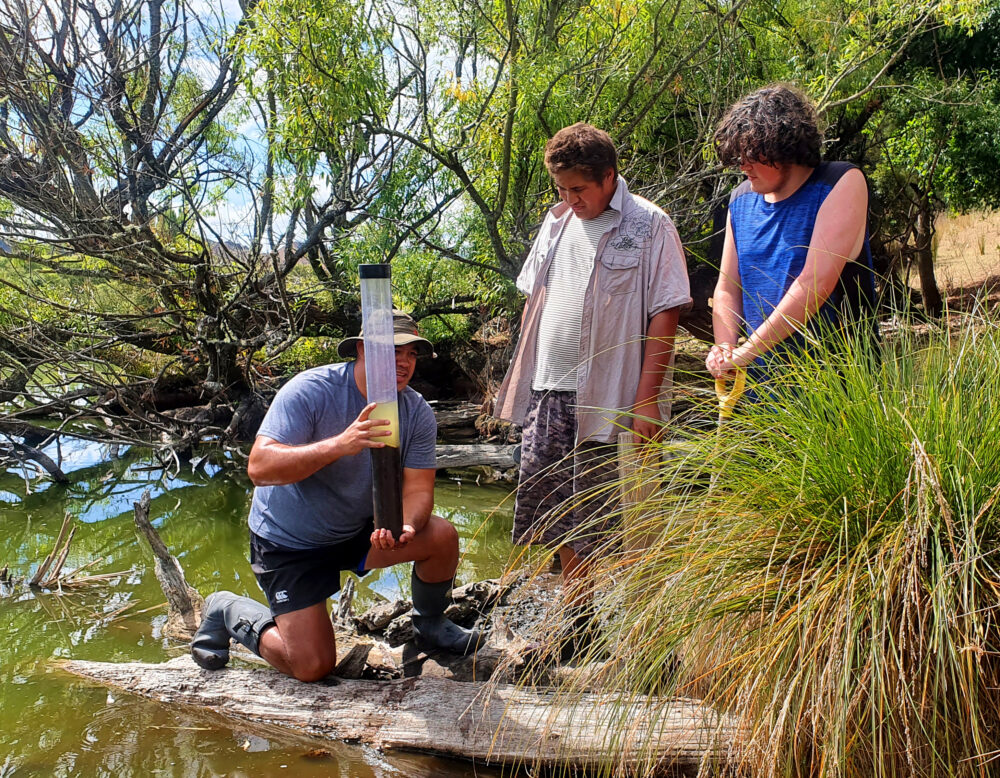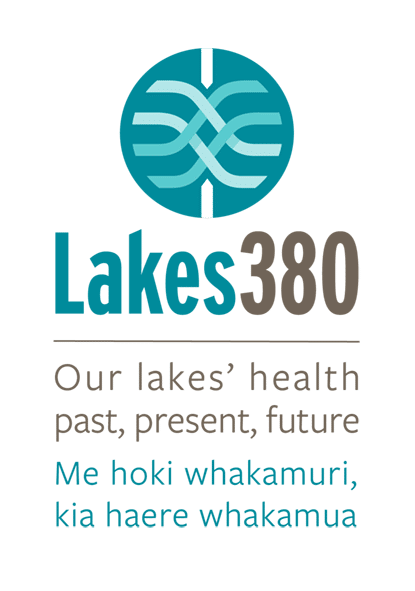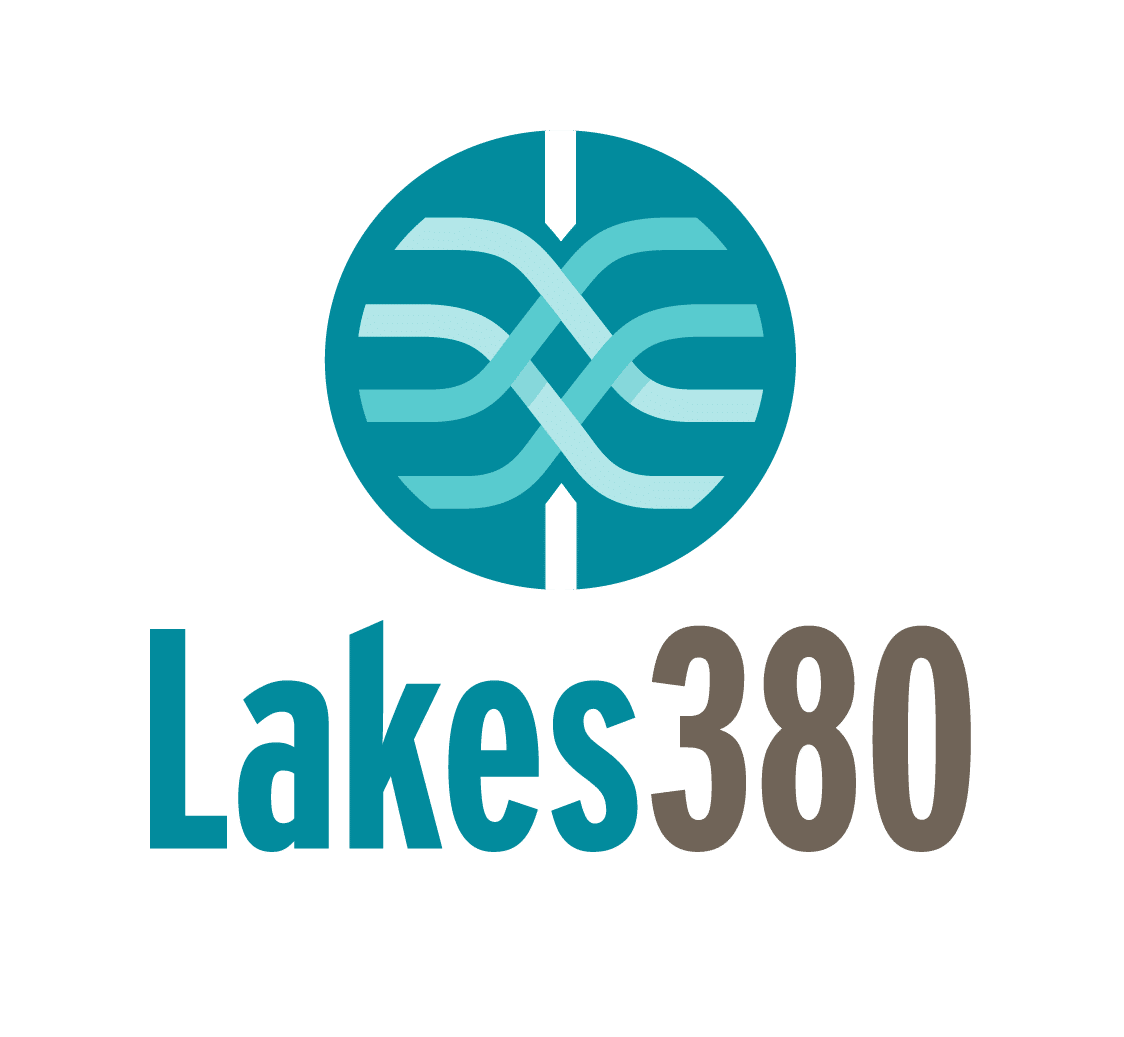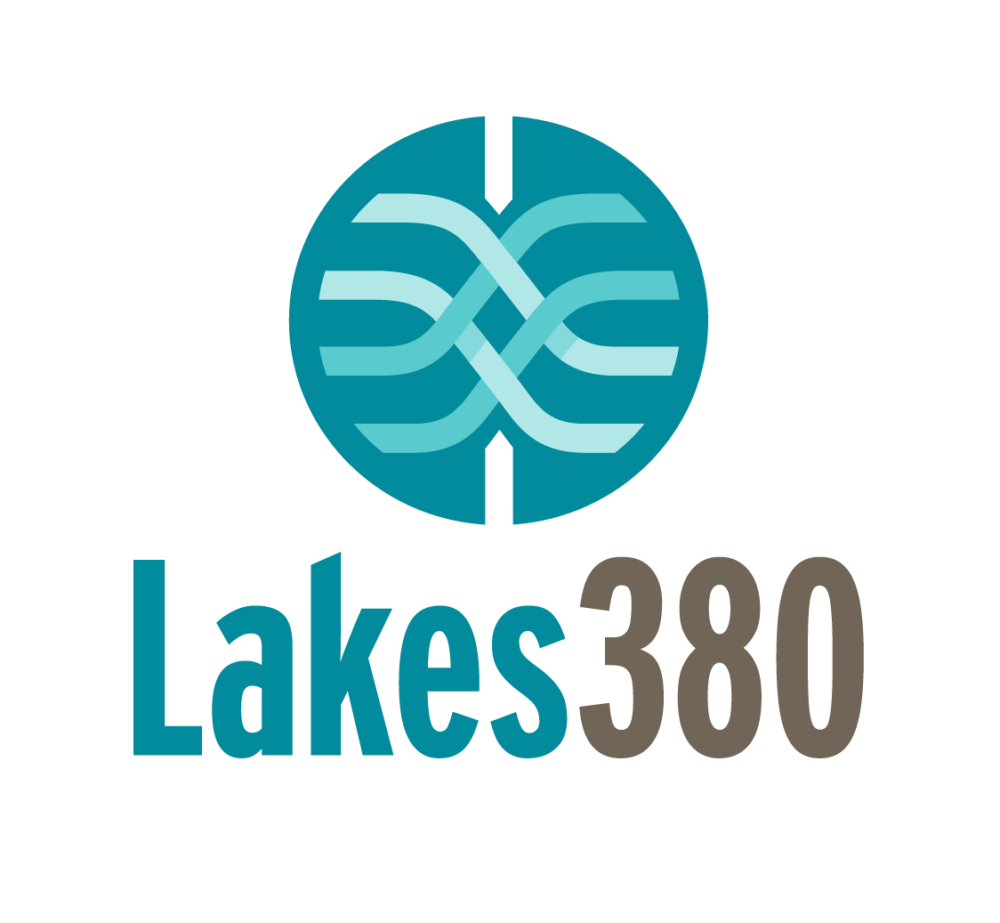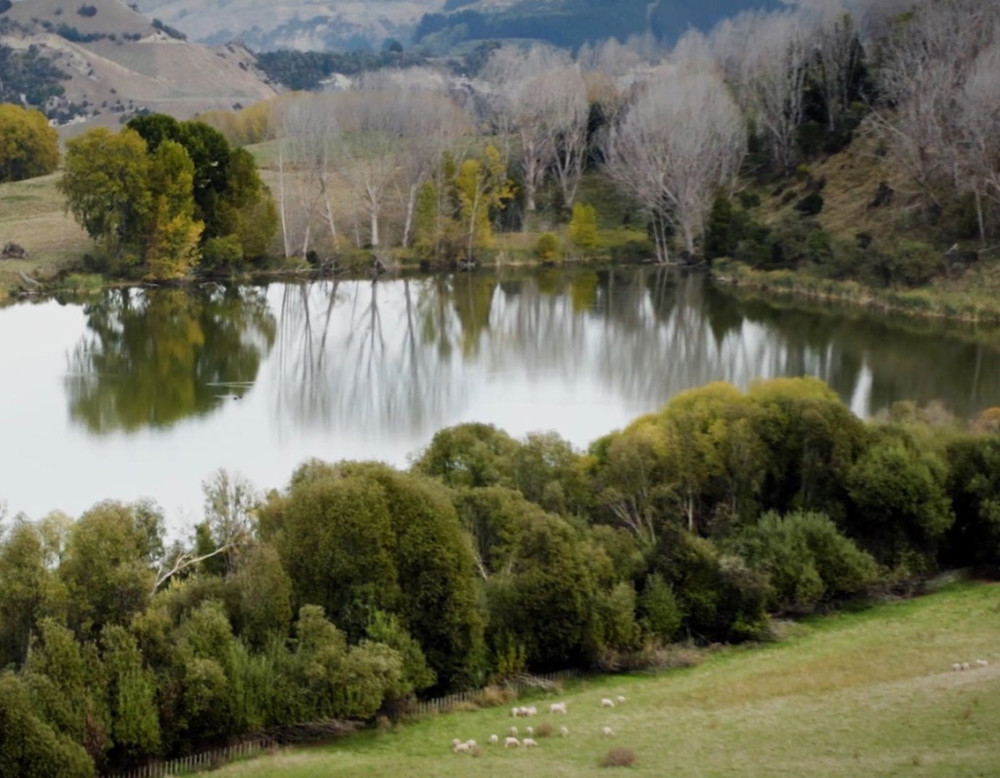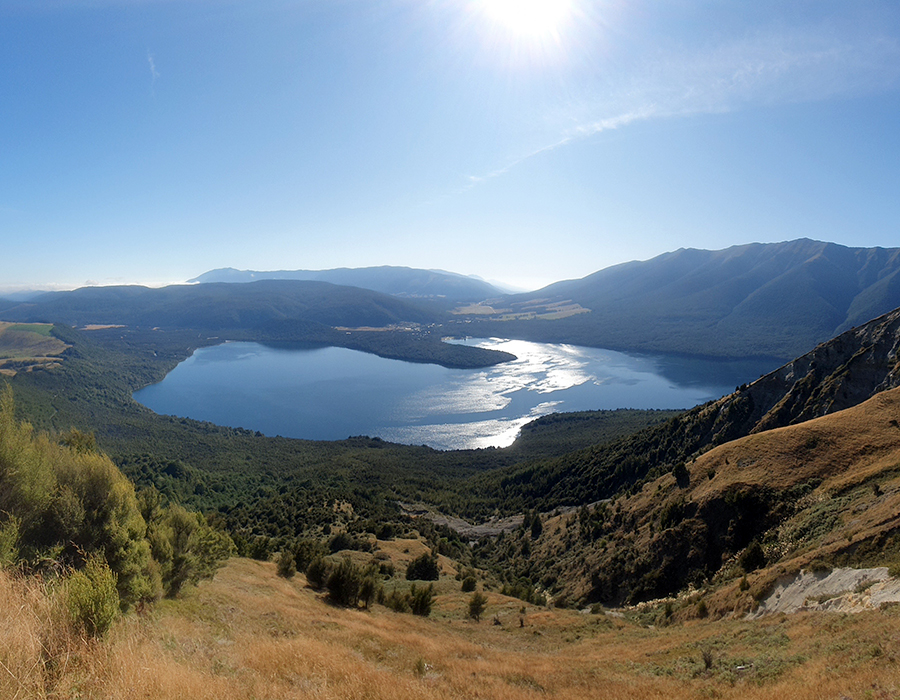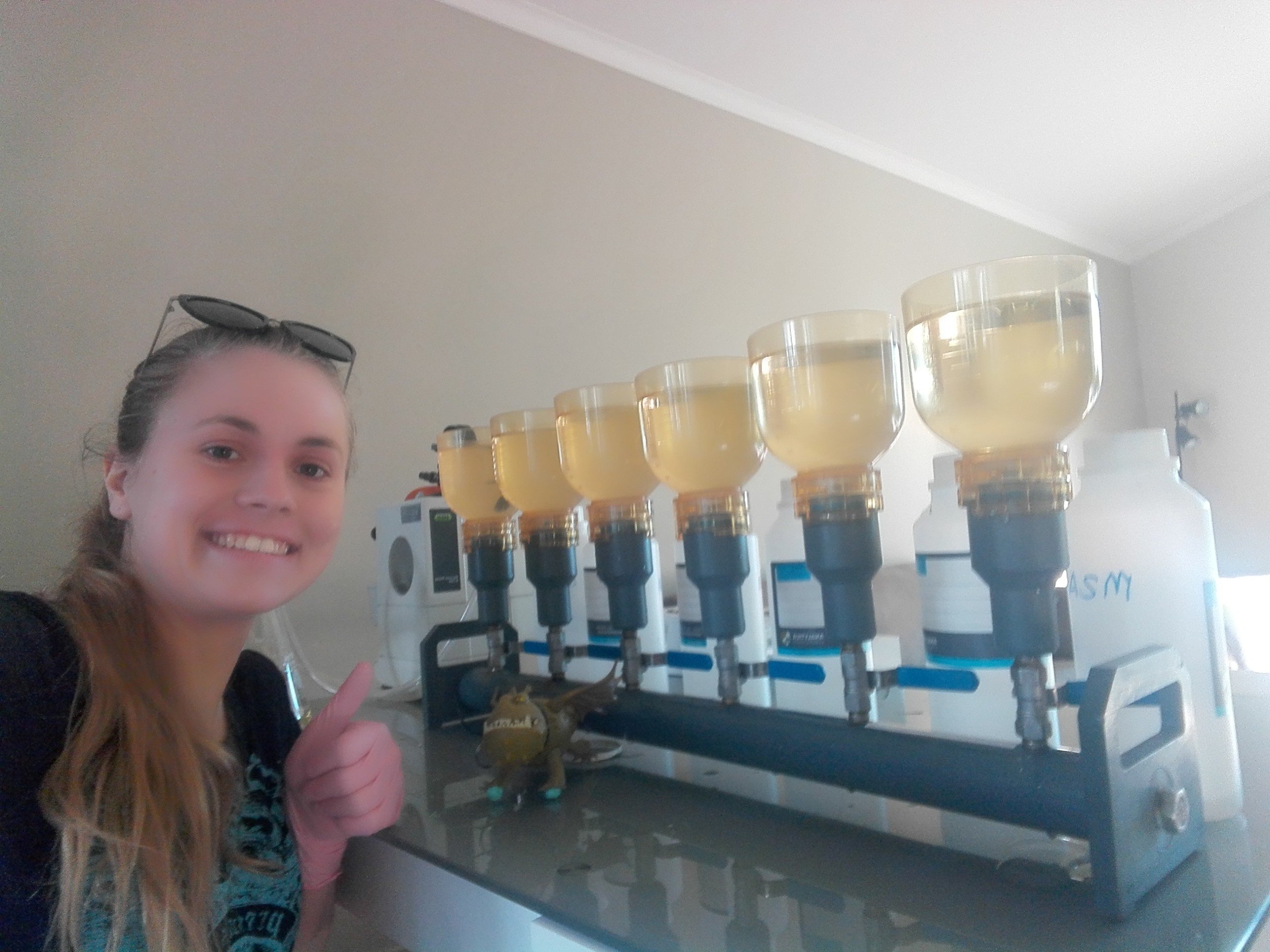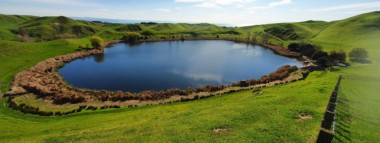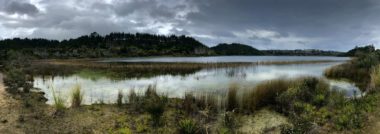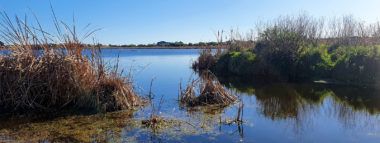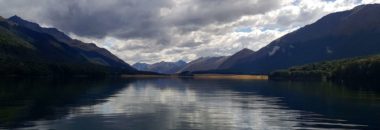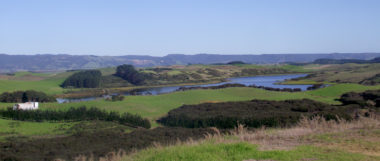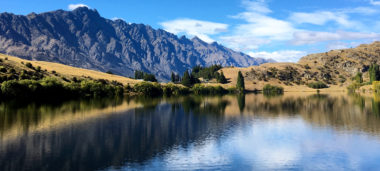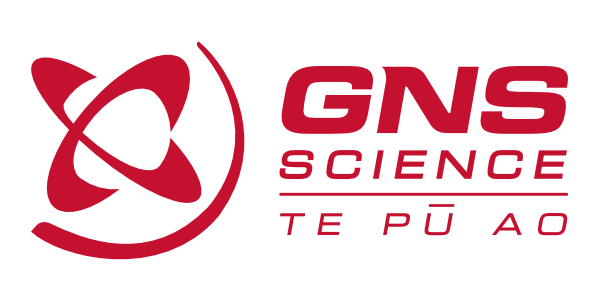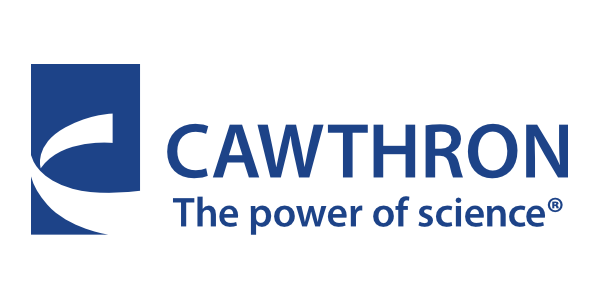The recently published manuscript ‘’Using paleolimnology to guide rehabilitation of a culturally significant lake in New Zealand ” tracks the environmental history of Lake Oporoa in Rangitīkei. The manuscript includes 16 authors from seven research institutes and Rangitīkei iwi members. It is a key output from the four-year partnership of Lakes380 researchers and Ngā Puna Rau o Rangitīkei who have collectively been exploring the environmental and cultural history of Lake Oporoa.
The team of researchers, led by PhD student Julia Short (University of Adelaide), analysed sediment core samples collected from Lake Oporoa using a variety of techniques. The manuscript also draws on Māori oral history, and childhood memories of Lake Oporoa. The analysis of the sediment core showed that following Māori settlement (~1620) there was gradual vegetation change and a corresponding shift in a few, but not all, organisms in the lake. These changes are indicative of some nutrient increases in the lake. Further native forest was removed following European settlement from ~1840 which resulted in the lake becoming further enriched in nutrients and causing an increase in algal abundance.
Conversations with Ngā Puna Rau o Rangitīkei and the results of the sediment core analysis, indicate that a culturally acceptable and realistic rehabilitation target for Lake Oporoa aligns with ecological conditions in the 1950s. The data from this study is providing information to guide catchment and in-lake revegetation and other methods of nutrient reduction, with the eventual aim of restoring culturally important native fish populations.
You can also learn more about Lake Oporoa and our partnership with Ngā Puna Rau o Rangitīkei in the short film Whakahokia te mauri o Oporoa. This film celebrates the commitment of Rangitīkei iwi to enhancing the mauri (life force) and ecological health of Lake Oporoa.
